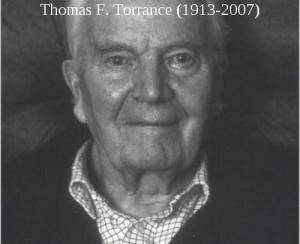Here is some TF Torrance on the way he thinks the natural sciences and theological science might relate; might even complement each other from their own distinctive verities.
 . . . theological science and natural science have their own proper and distinctive objectives to pursue, but their work inevitably overlaps, for they both respect and operate through the same rational structures of space and time, while each develops special modes of investigation, rationality, and verification in accordance with the nature and the direction of its distinctive field. But since each of them is the kind of thing it is as a human inquiry because of the profound correlation between human knowing and the space-time structures of creation, each is in its depth akin to the other . . . natural science and theological science are not opponents but partners before God, in a service of God in which each may learn from the other how better to pursue its own distinctive function . . ..[1]
. . . theological science and natural science have their own proper and distinctive objectives to pursue, but their work inevitably overlaps, for they both respect and operate through the same rational structures of space and time, while each develops special modes of investigation, rationality, and verification in accordance with the nature and the direction of its distinctive field. But since each of them is the kind of thing it is as a human inquiry because of the profound correlation between human knowing and the space-time structures of creation, each is in its depth akin to the other . . . natural science and theological science are not opponents but partners before God, in a service of God in which each may learn from the other how better to pursue its own distinctive function . . ..[1]
But to be clear, TFT was not a proponent of a natural theology; just the opposite, he was a proponent of an analogy of faith, whereby theological knowledge is only available by evangelical encounter with the risen and ascended Christ by the Spirit. He maintained that knowledge of God was purely kataphysical (according to the nature of the revelation) in Christ’s coming and presencing among us. It is only as we come into union with Christ that a genuine knowledge of God can obtain; only from a center of God in Christ for us. This is an aspect of Jesus’ mediatorial and priestly role for us, as He mediates God’s life to us, through His divine life, and mediates humanity’s life before God, as the fully and archetypal human; firstborn from the dead.
[1] Paul Molnar citing Thomas Torrance’s, The Ground and Grammar of Theology, in, Thomas F. Torrance: Theologian of The Trinity, 24.
